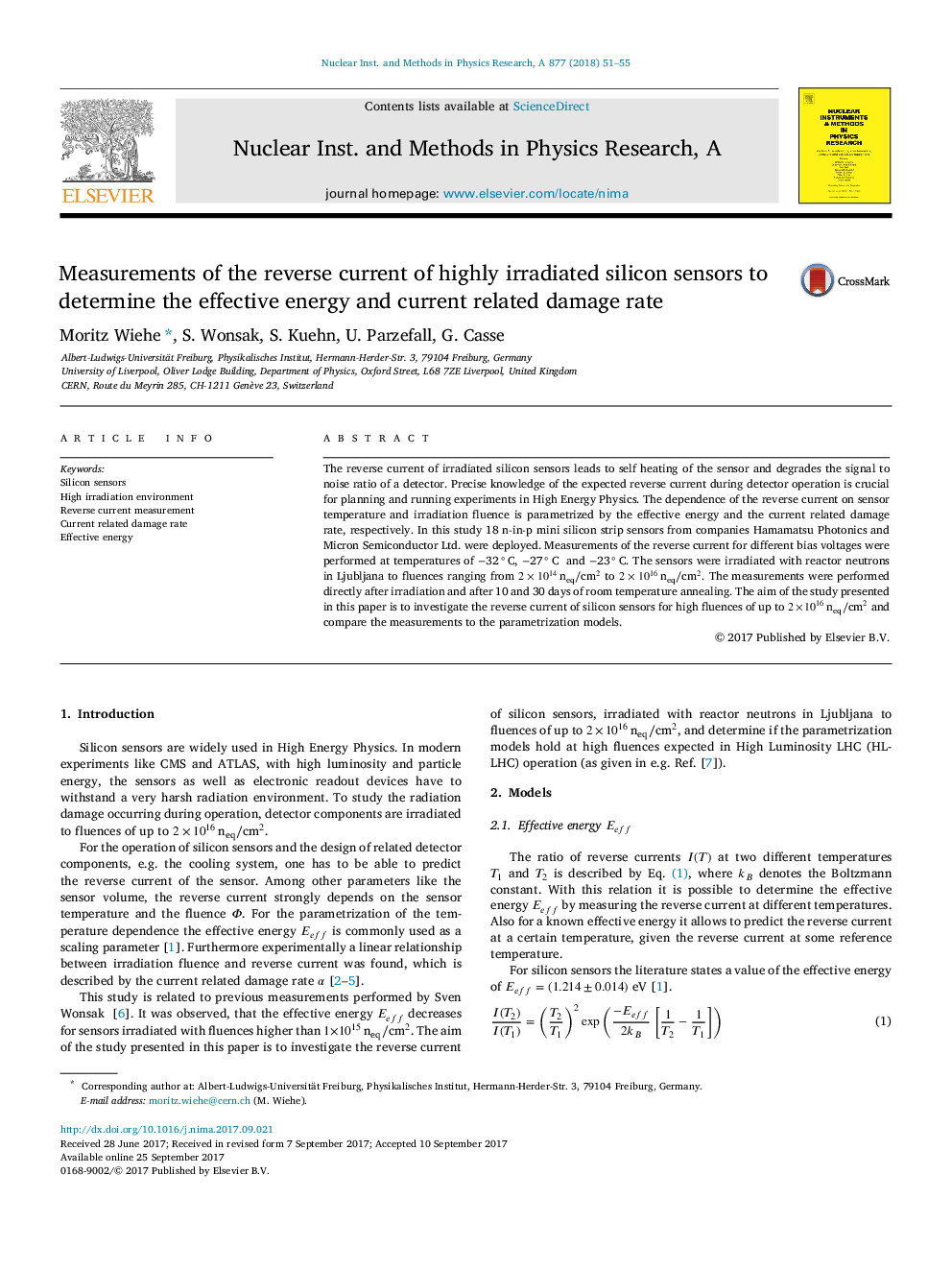| Article ID | Journal | Published Year | Pages | File Type |
|---|---|---|---|---|
| 5492502 | Nuclear Instruments and Methods in Physics Research Section A: Accelerators, Spectrometers, Detectors and Associated Equipment | 2018 | 5 Pages |
Abstract
The reverse current of irradiated silicon sensors leads to self heating of the sensor and degrades the signal to noise ratio of a detector. Precise knowledge of the expected reverse current during detector operation is crucial for planning and running experiments in High Energy Physics. The dependence of the reverse current on sensor temperature and irradiation fluence is parametrized by the effective energy and the current related damage rate, respectively. In this study 18 n-in-p mini silicon strip sensors from companies Hamamatsu Photonics and Micron Semiconductor Ltd. were deployed. Measurements of the reverse current for different bias voltages were performed at temperatures of â32 ° C, â27 ° C and â23 ° C. The sensors were irradiated with reactor neutrons in Ljubljana to fluences ranging from 2Ã1014neqâcm2 to 2Ã1016neqâcm2. The measurements were performed directly after irradiation and after 10 and 30 days of room temperature annealing. The aim of the study presented in this paper is to investigate the reverse current of silicon sensors for high fluences of up to 2Ã1016neqâcm2 and compare the measurements to the parametrization models.
Keywords
Related Topics
Physical Sciences and Engineering
Physics and Astronomy
Instrumentation
Authors
Moritz Wiehe, S. Wonsak, S. Kuehn, U. Parzefall, G. Casse,
